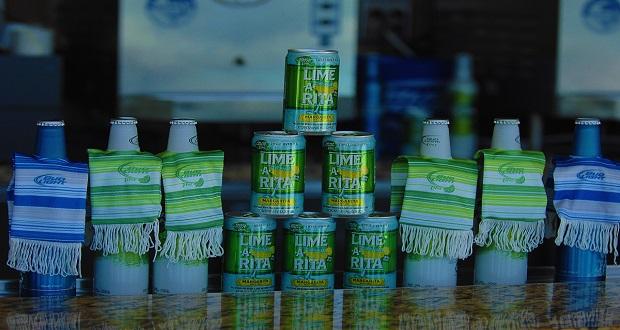
Last week, my Hulu programming was interrupted by a commercial for a store advertising colorful party cups and “select sombreros and t-shirts at half price!” The commercial’s voiceover never mentioned Cinco de Mayo, but the message was nonetheless conveyed as “Tequila made me do it,” and “Turn down por que” shirts flashed across the screen. I winced, reminded of how an occasion marking Mexican victory over an invasion has been appropriated, primarily by white people, as an excuse to become intoxicated and dress up in culturally inaccurate and appropriative costumes supposedly meant to “celebrate” Mexican culture.
Many people are under the misconception that Cinco de Mayo is Mexico’s Independence Day; in fact, Mexican independence from Spain is celebrated on September 16th and was declared over 50 years before the victory that May 5th commemorates. This is just one iteration of the prevalent lack of awareness around a holiday that many celebrate, oblivious to its historical significance.
The geographical area today recognized as Mexico (and other territories that were once in its purview) has had a long and complex history of occupation and imperialism perpetrated by other nations and powers seeking to gain riches, resources, territory, or influence. Unsurprisingly, this dynamic has repeatedly played out with the conquering powers showing little to no regard for the interests of Mexico’s Indigenous people and others who called it home. These conflicts and occupations have regularly involved bloodshed and unspeakable acts of violence toward, and dehumanization of those native to the area. Cinco de Mayo represents the unexpected victory of the Mexican army over an invading French army twice its size, at the battle of Puebla. This occasion boosted morale among the Mexican people and marked a temporary victory; however, one year later, Mexico City fell to the French in yet another invasion.
Cinco de Mayo is celebrated more widely in the United States than in Mexico. This was originally for a noble purpose; in the 1960s, Chicanx activists sought to raise awareness of an empowering example of the victory of Indigenous people over European invasion. In many Mexican-American communities, Cinco de Mayo has become a celebration of Mexican-American heritage. Then…there are the rest of us.
To be clear, there is nothing wrong with celebrating a culture of which we are not a part if we’re doing it respectfully, in an informed manner, and for the right reasons—it can be an opportunity to learn, develop empathy, and celebrate and bridge across difference. Unfortunately, for many of us, Cinco de Mayo consists more of partying by appropriating a culture with no awareness of the harm we are perpetuating than it does of genuine appreciation and respect for that culture or its history.
The history behind this less noble trend traces, predictably, to capitalism. In the 1980s, beer companies saw an opportunity for sales, and began sponsoring Cinco de Mayo events and targeting advertisements around the holiday. It worked—today, Cinco de Mayo alcohol sales outpace those of St. Patrick’s Day, and many people now celebrate the occasion with consumption of alcohol and throwaway products. Just as upsetting, beer companies have used Cinco de Mayo specifically as an opportunity to target Latinx consumers. The article linked above recounts, “In 1989 a party sponsored by Anheurser-Busch turned into a drunken riot, and Latino activists accused the company of ‘pushing a legalized drug upon our community.’” Consider the irony of Euro-American interests and institutions exercising influence over Latinx and Chicanx communities by capitalizing on a holiday intended to celebrate the very opposite—the outrage is warranted.
Consider the irony of Euro-American interests and institutions exercising influence over Latinx and Chicanx communities by capitalizing on a holiday intended to celebrate the very opposite. Click To TweetThis past Sunday, I drove past a real estate office here in Colorado, a state which happens to be part of the staggering 525,000 square miles of former Mexican territory ceded to the United States in 1848 under the Treaty of Guadelupe Hidalgo. An LED sign outside of the office displayed a poor, sideways rendering of the colors of the Mexican flag with bright blue letters superimposed on top: “Happy Cinco de Mayo.” I marveled as I realized that our collective (lack of) understanding of the significance of this holiday has brought us to a point where a company selling land once occupied by Indigenous people—then taken by force—can unironically display a superficial message celebrating that culture. Not to mention, they ostensibly programmed the sign to appear fun and culturally “tuned in,”—and in turn, to attract more customers. All the while, our history of doing with our Southern neighbor what suits the interests of those in power continues to play out as those in our highest offices demonize its residents and their relatives, and threaten to construct barriers to physically block them from seeking refuge in lands that once belonged to them.
Our collective (lack of) understanding of the significance of this holiday has brought us to a point where a company selling land once occupied by Indigenous people—then taken by force—can unironically display a superficial… Click To TweetIt is all too easy for those of us holding privilege to go through our lives without considering the ways we have benefitted from historical injustices. This is problem enough. Even more harmful is, in that ignorance, trivializing and appropriating the cultures of people we have denigrated and taken advantage of. We as white people need to do better: educating ourselves about other cultures, and the ways we have historically exploited and continue to exploit them, and spreading this knowledge among our communities.
If celebrating Latinx culture and supporting Latinx people is your aim, put down your beer for a moment. Spend some time reflecting honestly on your role in, or complicity with, ongoing injustices. Then, consider how you might take action to remedy the disenfranchisement and injustices we have collectively perpetuated against this community.
If celebrating Latinx culture and supporting Latinx people is your aim, put down your beer for a moment. Spend some time reflecting honestly on your role in, or complicity with, ongoing injustices. Click To Tweet

















